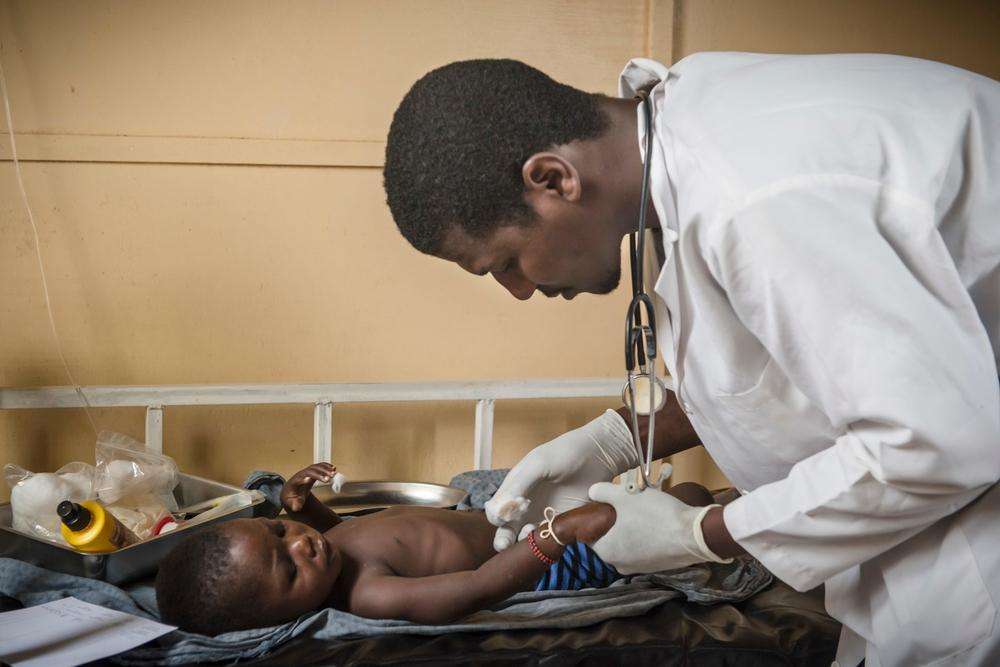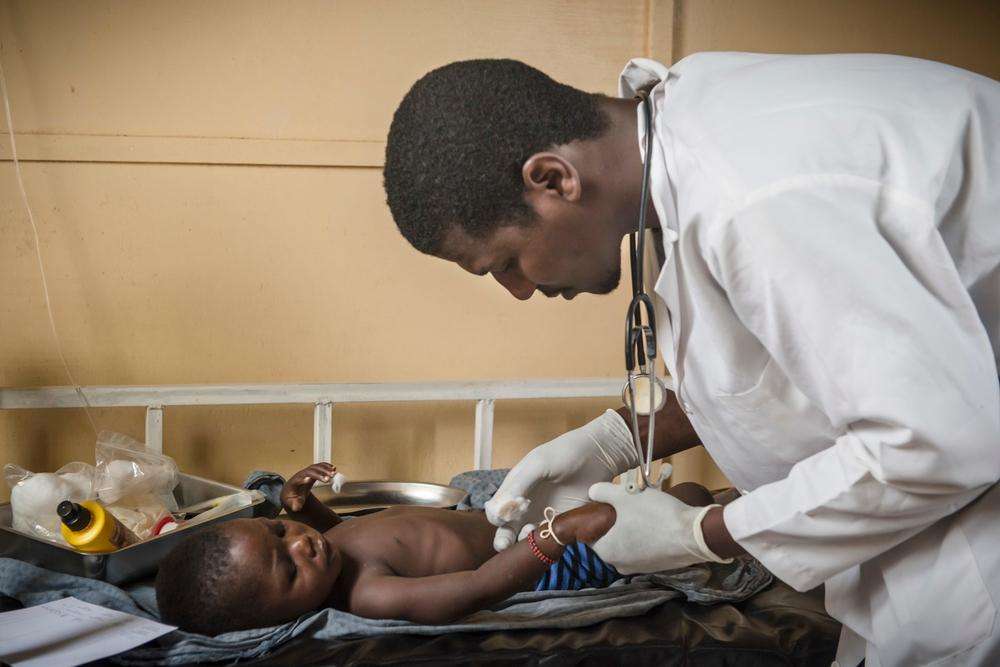Doctors Without Borders/ Médecins Sans Frontières (MSF) pediatrics advisor Dr. David Green recently arrived in Koutiala, southern Mali, to begin an extended visit to one of MSF’s largest pediatric programs at Koutiala Reference Hospital. Here, he describes a day working with the hospital’s Malian doctors, whose wealth of experience keeps the six-year-old project running.
I am working in the pediatric department of Koutiala reference hospital, which is one of MSF’s biggest pediatrics projects, caring for babies and children under five years old. There are 200 beds—but this number can jump by another 100 or so in the malaria season! I’m a senior pediatrician. I am 54. Back home that’s still young. In Mali it’s the average life expectancy. I’ll stick with the word "senior."
The day starts at 7:30 a.m. with a handover in the doctors’ office between day and night teams. We discuss the sickest children, and the deaths. There were two deaths overnight. Children often come to us very late in their illness, usually after having sought help from traditional healers first. After the handover, there’s a quick round of the sickest children.
A Division of Labor
At 8:30 a.m. (three times a week) I go to the labor ward with Dr. Yare, where we’re going over newborn resuscitation with the midwives. We’re building on a neonatal resuscitation training program (Helping Babies Breathe) that he began with previous MSF pediatricians. Maternity care, however, is not part of our mandate in Koutiala; MSF is running pediatric and neonatal activities in collaboration with the Ministry of Health inside the Koutiala Reference Hospital, while maternity and the midwives are managed by the Ministry.
Ideally, the labor ward and all newborn care should be seamlessly integrated but, as in a few of our projects, we must work in two different systems and physical spaces. In Koutiala we’re building bridges metaphorically—though there will be some physical building starting soon with MSF’s most recent construction project, which will hopefully bring the labor ward and neonatal unit closer together.
“The Young Doctors Know Their Stuff”
The rest of the morning is spent visiting the various units in the MSF-run service: triage, admissions, resuscitation room, intensive care, pediatric ward, malnutrition wards, neonatal unit, infants ward, burns unit, diarrhea ward, and isolation rooms. My job is to give advice. This is a mature project, running since 2009. The young doctors know their stuff. The exchange of ideas is in both directions! I’m impressed with the team here.
Today, a Monday, is the weekly afternoon academic meeting where we will discuss our clinical laboratory. We’re lucky – we benefit from the on-site MSF laboratory (blood bank, hematology, bacteriology, biochemistry). Among other things, they do blood cultures (looking for infection in the blood). There’s so much infection that the system is saturated. In the malarial season they will surely be swamped. In the meeting we discuss ways to prioritize who should get a blood culture.
After the meeting I do another tour, and follow up on individual patients I saw in the morning. Throughout the evening and night, doctors on shift at the hospital will call me with any questions they have; barring any emergencies that will require a nocturnal trip to the hospital, I’ll have a good night’s sleep before starting the process all over again tomorrow.
Learn More About MSF's Koutiala Pediatrics Project at childhealthmali.msf.org
In Koutiala, southern Mali, severe acute malnutrition, malaria, diarrhea, respiratory tract diseases, and other so-called opportunistic infections pose severe threats to the survival of children under five years. To reduce morbidity and mortality in a region that has very few health professionals, MSF has provided preventive and curative care in partnership with the Ministry of Health and Public Hygiene of Mali since 2009. In 2015, more than 11,000 children were hospitalized, 70 percent of whom were admitted with malaria.





